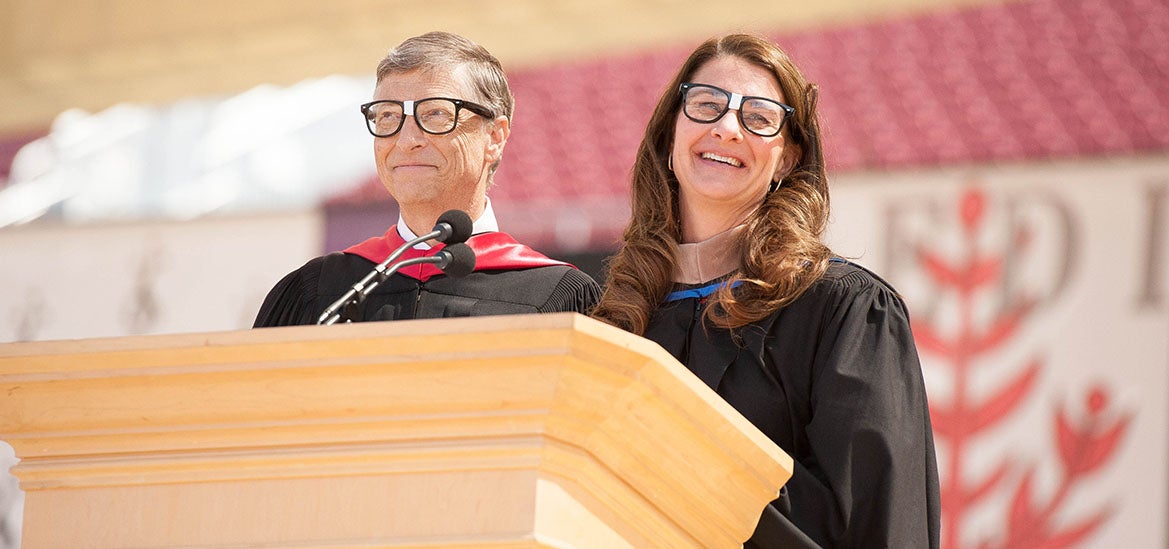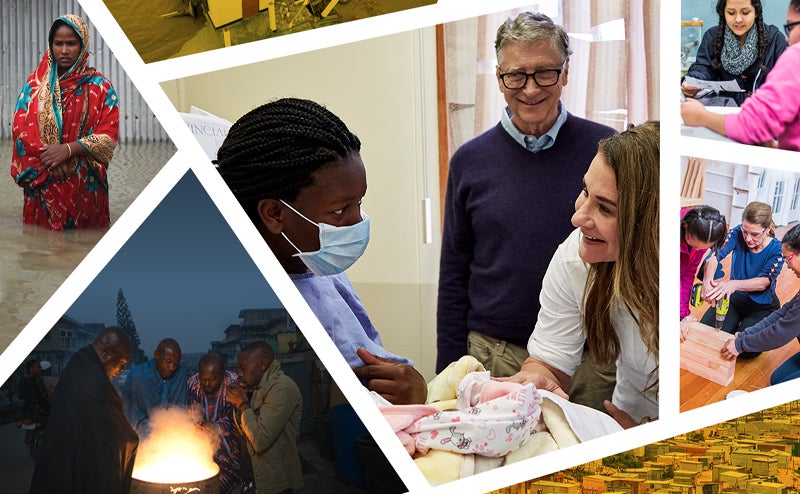For this year’s graduating class, the COVID-19 outbreak has meant the cancellation of long-awaited commencement ceremonies. Graduation is about more than walking across the stage to collect a diploma, though. It marks the beginning of the next phase of your life, which is something worth celebrating even in these difficult times. The Wall Street Journal asked Melinda and me to share some thoughts about that transition. Here is what we wrote.
- Bill
Most commencement addresses do not change the course of history. On a sunny afternoon in 1947, then-Secretary of State George C. Marshall gave one that did.
Speaking at Harvard University, the former general reminded his audience that a few thousand miles away from where they gathered that day, the aftermath of World War II had plunged Europe into poverty, hunger and despair. The American people, he explained, had a responsibility to come to Europe’s aid despite being themselves so “distant from the troubled areas of the earth.” Even if you’ve never heard that speech, you are probably familiar with the policy agenda it proposed: the Marshall Plan, which helped speed Western Europe’s recovery and usher in a new era of peace and prosperity.
Today, as then, the world faces mass suffering and economic devastation. Again, nations will need to pull together to rebuild. But this time, you, the graduating class of 2020, don’t need a commencement speaker to paint a picture of the “troubled areas of the earth.” The Covid-19 crisis we confront today is not a localized experience but a truly global one.
The inextricable ties between the people of the world are something that your generation understands better than perhaps any that has come before it. Many of you have been logging onto the Internet since you could read. You’ve grown up with access to pop culture, news and perspectives from societies thousands of miles from your home. And the major challenges looming over your future—disease outbreaks, climate change, gender inequality, poverty—are also being confronted by your peers in every part of the globe.
So, what does all of this mean for the next chapter of your lives? As a member of our global community, your actions can have a global impact. Whatever your professional goals, wherever you live, whoever you are, there are ways, big and small, that you can participate in making the world better for everyone.
If this crisis has inspired you to pursue a career in public service, that’s fantastic—but it’s not the only way to contribute. You can always use your voice and your vote to advance change. You can insist on policies that create a healthier, better future for everyone, everywhere—whether they live down the street or on the other side of the planet.
It’s true that you are entering this new phase of your life at a daunting time. For many of you, the path you’d envisioned after graduation may suddenly be much steeper. With so many things to worry about—from your health to your family to what the job market means for your ability to pay off your loans—it is understandable that you may need to put on hold the bigger questions about your role in improving the world.
But there is no question that you have a role to play, whether that’s now or in the future. You inherit a world that has already proven that progress is possible— a world that has rebuilt after war, vanquished smallpox, fed a growing population, and enabled more than a billion people to climb out of extreme poverty.
That progress didn’t happen by accident or fate. It was the result of people just like you who made a commitment that whatever else they did with their lives and careers, they would contribute to this shared mission of propelling us all forward. Class of 2020, these are not easy times. But we will get through them. And with your leadership, the world will be stronger than before.




